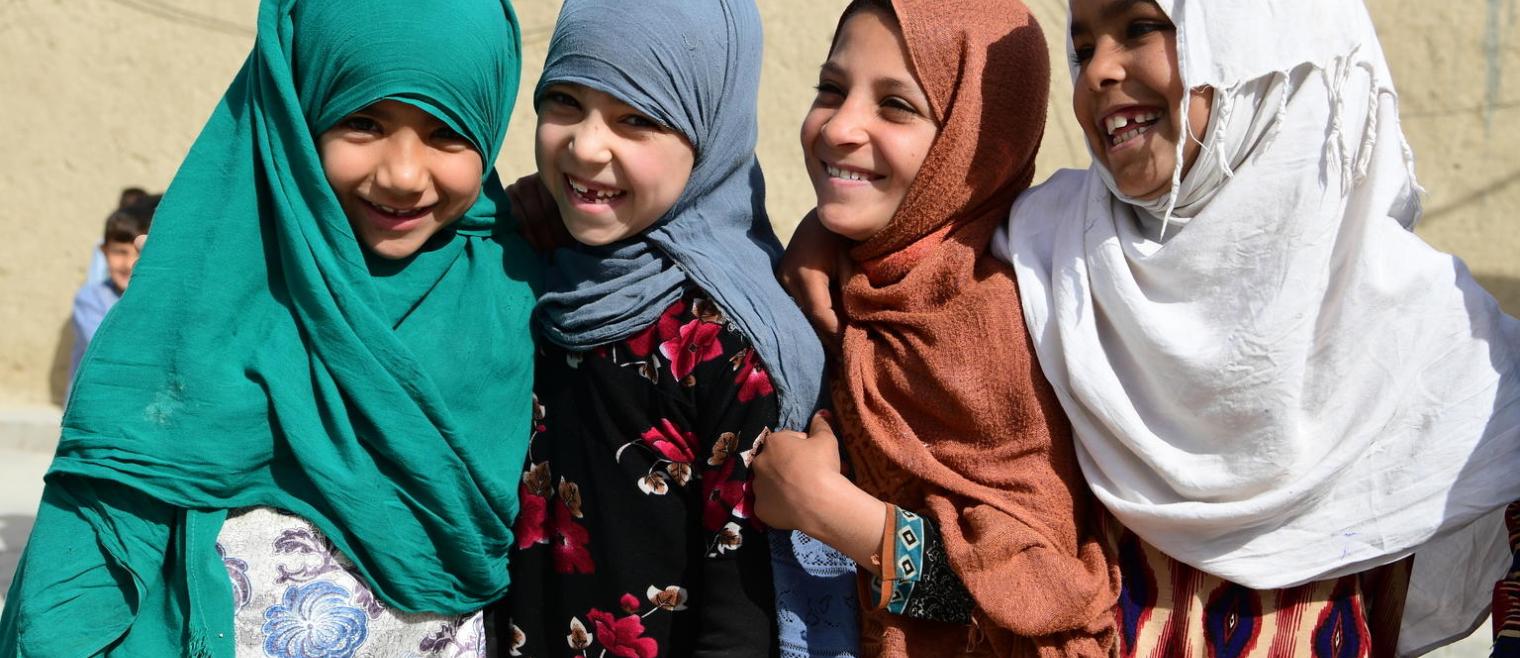Direct beneficiaries: 713,843 | Indirect beneficiaries: 38,654,412
The Spoltight Initiative in Afghanistan will bring women and girls, including those with intersecting forms of discrimination and marginalization, to the centre of interventions to end sexual and gender-based violence and harmful practices (SGBV/HP). It recognizes that these women and girls, their unique experiences and the solutions they bring based on their intersectional identities, are key to implementing a programme that responds to the needs and priorities of women and girls of Afghanistan in all their diversity. It aims to reduce harmful practices including child marriage, intimate partner and domestic violence, baad and badal (using girls as compensation to settle disputes).
Bringing together government, civil society, the European Union and the United Nations provides an opportunity to consolidate and accelerate efforts aimed at reducing sexual and gender-based violence by drawing on national and global evidence.
Innovations
Formal social accountability mechanisms within communities, through support to community leaders and members to agree on ordinances that address child marriage. The communities identify mechanisms to enforce and monitor agreed ordinances among themselves.
RapidPro supports programmes in sending personalized messages over SMS, voice, social media, and internet-based channels with responses analysed in real-time. UNICEF’s Rapid pro real-time monitoring systems will be used to address programme bottlenecks and facilitate a better understanding of needs. This will allow adequate planning as well as corrective actions within ongoing project and programme interventions. RapidPro is one of the recognized and highly recommended ways to make affected populations accountable when it comes to participation in response decisions and local actions. This platform is a technology-based solution that is recommended for facilitating two-way communication approaches via mobile phones (voice calls, short message services), social media platforms (like Facebook, Twitter, Instagram, Weibo and others) or messaging apps (WhatsApp, Viber, etc.).
UN Agencies
UNDP, UNFPA, UNICEF, UN Women
Photo: UNICEF/Frank Dejongh

